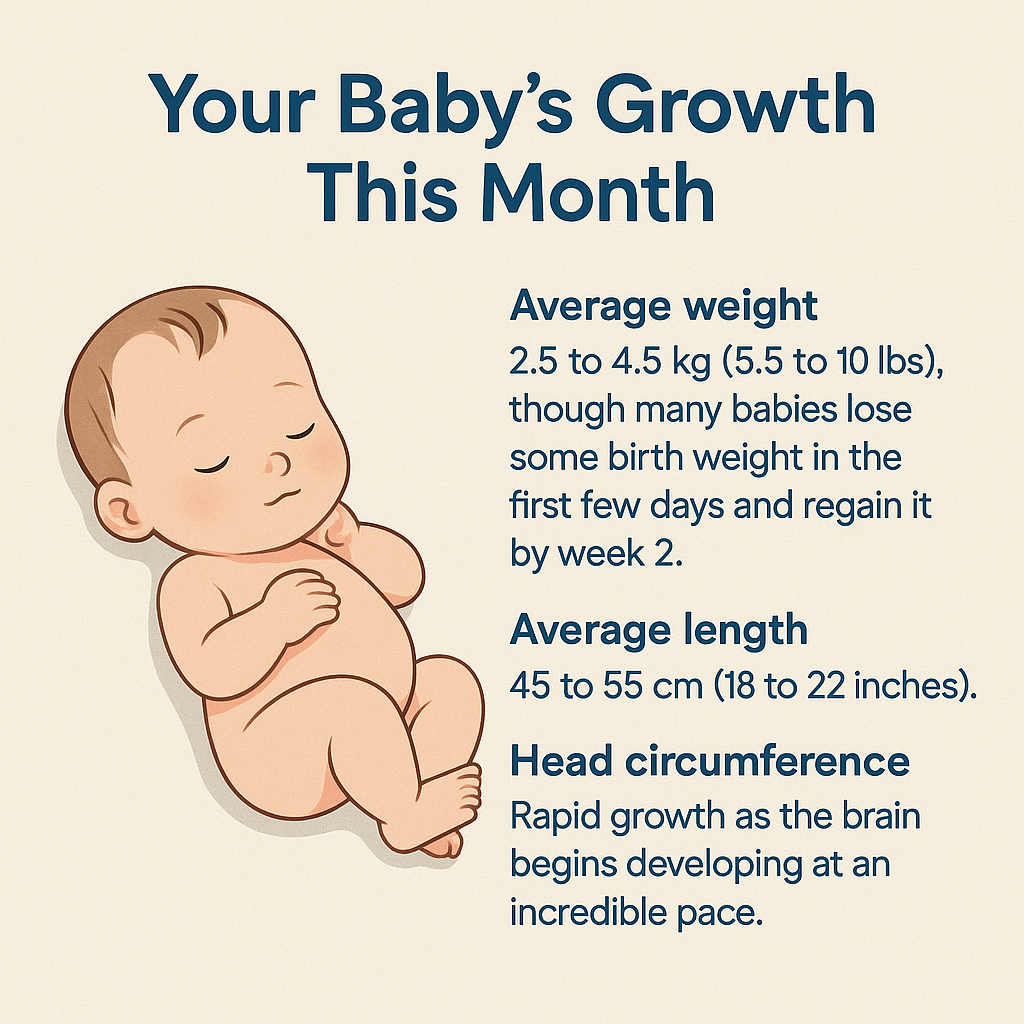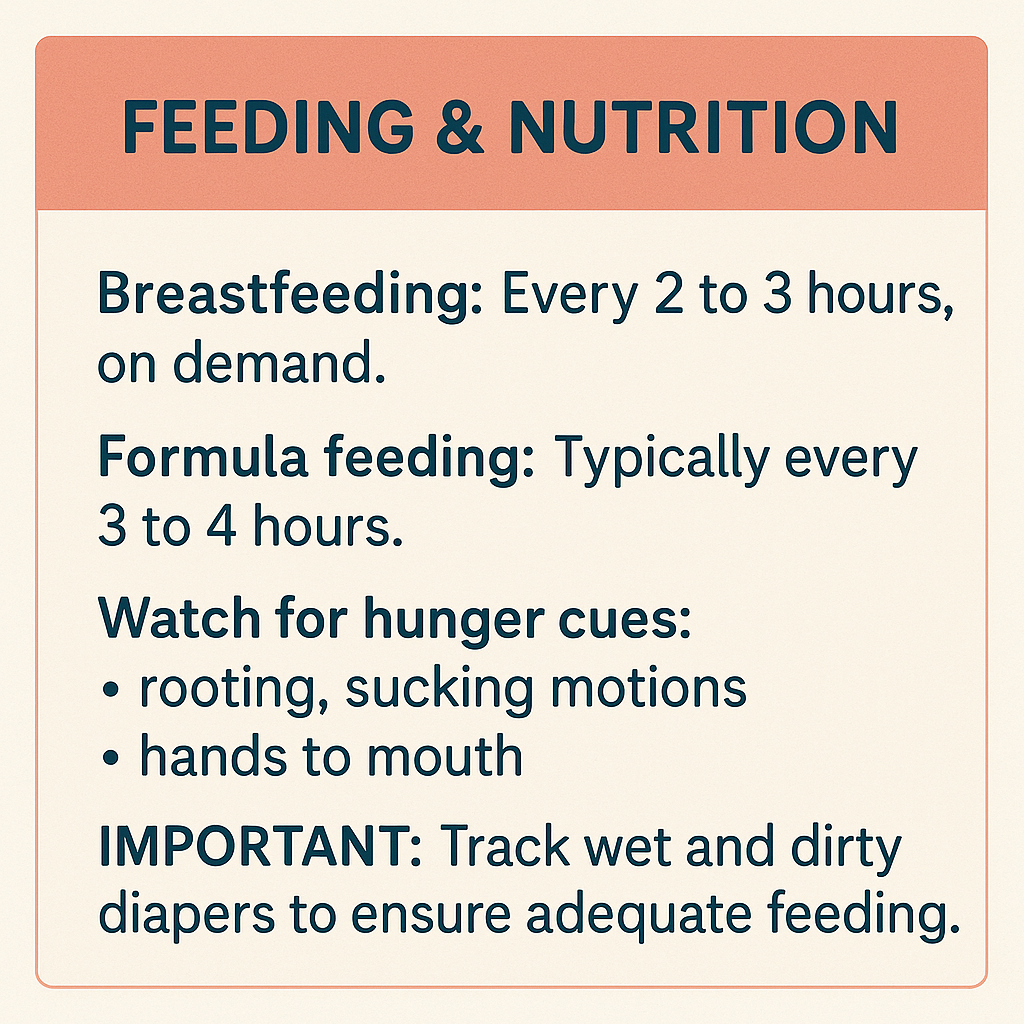Your Newborn’s First Month Milestones, Growth, Sleep, and Parental Tips
Welcoming your newborn into the world is both an exciting and overwhelming experience. In the first month, your baby is adjusting to life outside the womb while you’re adapting to a new routine as a parent. While your newborn’s days might seem to revolve around sleeping, feeding, and diaper changes, incredible growth and development are already underway.
Here’s what to expect during your baby’s first month—from milestones to health care tips.
🍼 Your Baby’s Growth This Month
- Average weight: 2.5 to 4.5 kg (5.5 to 10 lbs), though many babies lose some birth weight in the first few days and regain it by week 2.
- Average length: 45 to 55 cm (18 to 22 inches).
- Head circumference: Rapid growth as the brain begins developing at an incredible pace.
Note: Growth varies widely; your pediatrician will track your baby’s growth curve during health visits.
👶 Developmental Milestones
While it may not seem like much is happening yet, your newborn is achieving important early milestones:
- Reflexes: Startle (Moro), rooting, sucking, and grasping reflexes are active.
- Vision: Can focus on objects 8 to 12 inches away (perfect for gazing at your face!).
- Hearing: Fully developed—your baby may turn toward familiar voices.
- Movement: Jerky arm and leg motions as muscles start strengthening.
- Social: By the end of the month, some babies begin to make brief eye contact.
🎯 Firsts to Watch For
- First social smile (though this may come around 6 weeks).
- Recognizing parents’ voices and calming in response.
- Following high-contrast objects briefly with their eyes.
🍽 Feeding & Nutrition
- Breastfeeding: Every 2 to 3 hours, on demand.
- Formula feeding: Typically every 3 to 4 hours.
- Watch for hunger cues: rooting, sucking motions, hands to mouth.
- Important: Track wet and dirty diapers to ensure adequate feeding.
🌙 Sleep Patterns
- Newborns sleep 14 to 17 hours per day, broken into short stretches.
- No consistent day/night pattern yet—this will develop over time.
- Safe sleep tip: Always place baby on their back to sleep. Use a firm mattress with no loose bedding.
💉 Vaccines & Health Checks
- Hepatitis B vaccine: Typically given at birth or during the first month.
- First pediatrician appointment within the first week.
- Monitoring for jaundice, feeding issues, or other early concerns.
🤒 Common Health Notes
- Jaundice is common in the first week—seek medical advice if it worsens.
- Cradle cap, baby acne, and peeling skin are normal and usually temporary.
- Keep the umbilical cord stump clean and dry until it falls off (usually by 2 weeks).
🔔 Parental Care Reminders
- Rest when you can—sleep deprivation is common but manageable with support.
- Don’t hesitate to ask for help from family, friends, or healthcare providers.
- Monitor your own physical and emotional health, especially signs of postpartum depression or anxiety.
Pro Tips for Parents This Month
- Skin-to-skin contact helps with bonding, regulating baby’s temperature, and soothing fussiness.
- Talk, sing, and read to your baby—even at this young age, your voice supports language development.
- Take newborn photos! They change faster than you might expect.
Final Thoughts
Your newborn’s first month is a time of major adjustment and quiet growth. Though daily care may feel repetitive, every moment helps your baby feel safe, loved, and ready to explore the world. Trust your instincts, take care of yourself, and remember—there’s no “perfect” way to parent. You and your baby are learning together.
Visited 134 times, 1 visit(s) today





